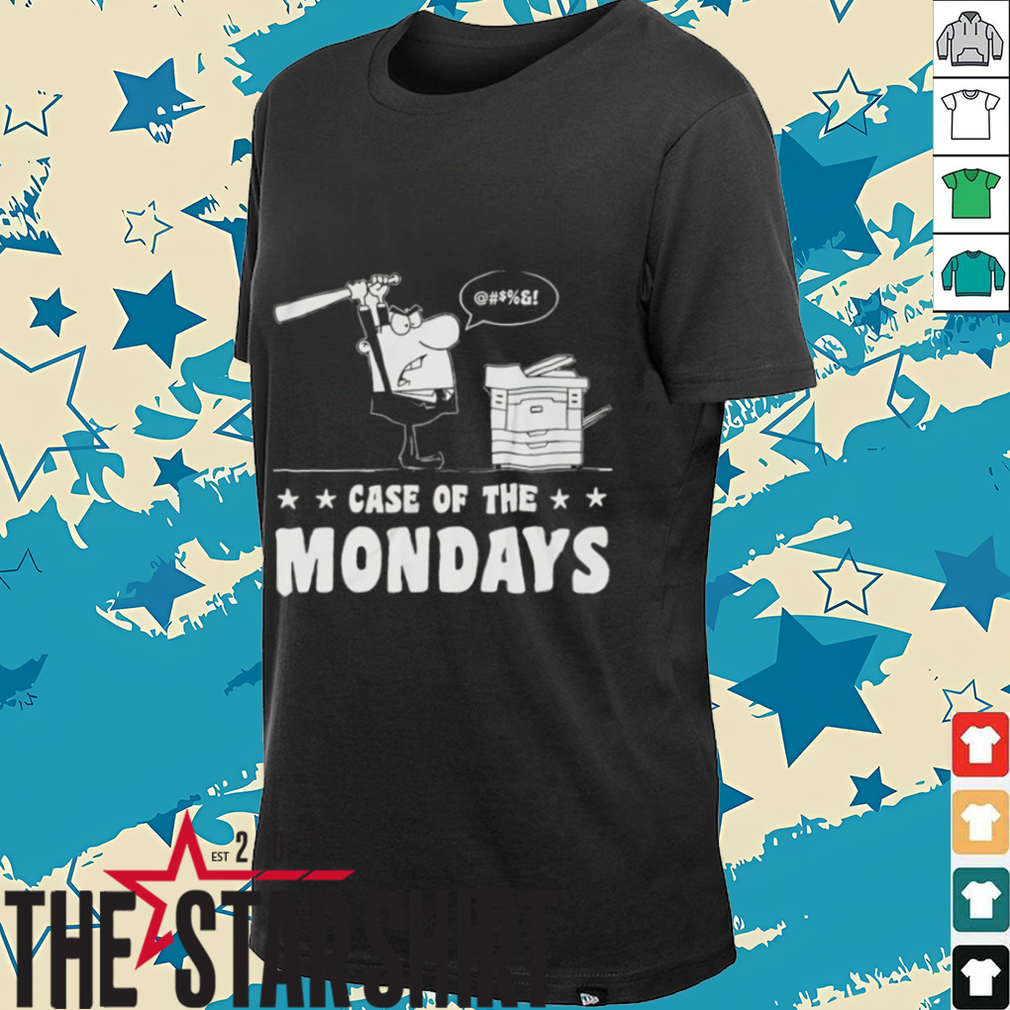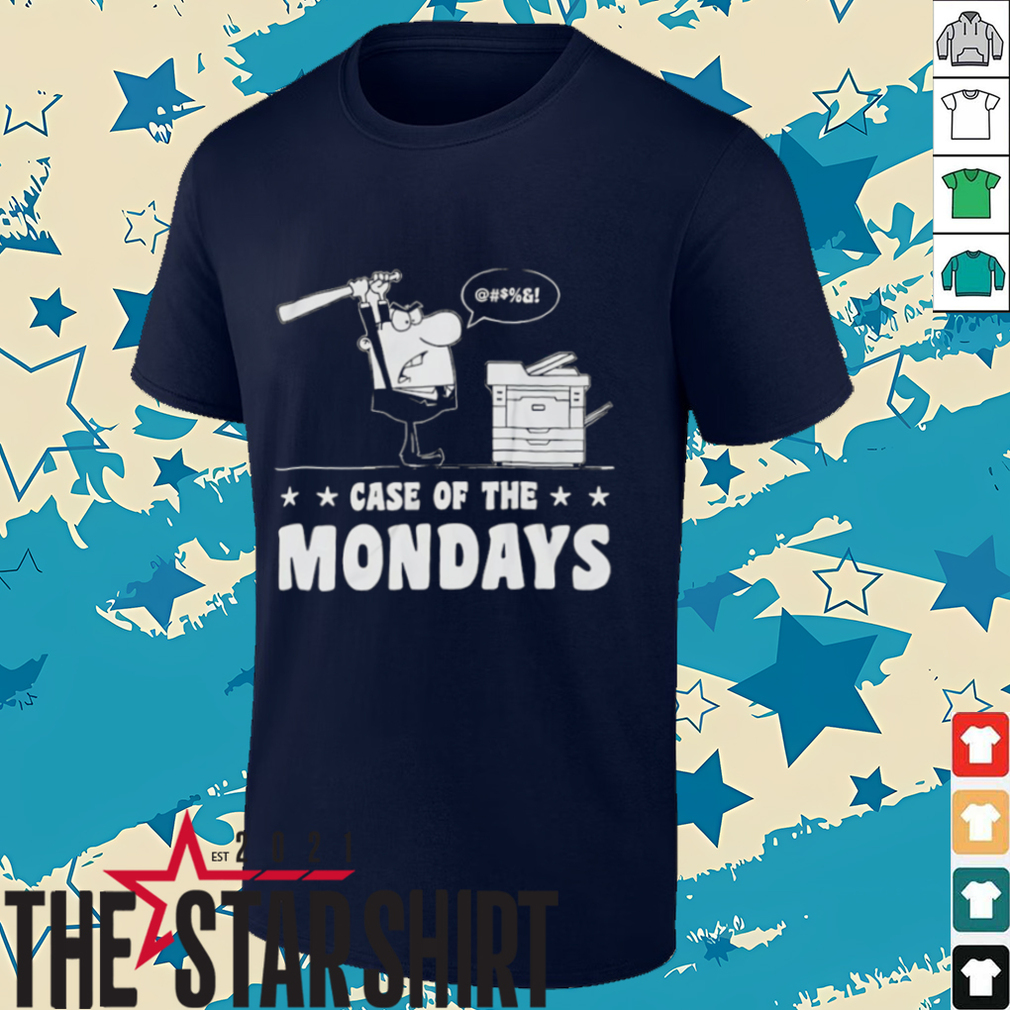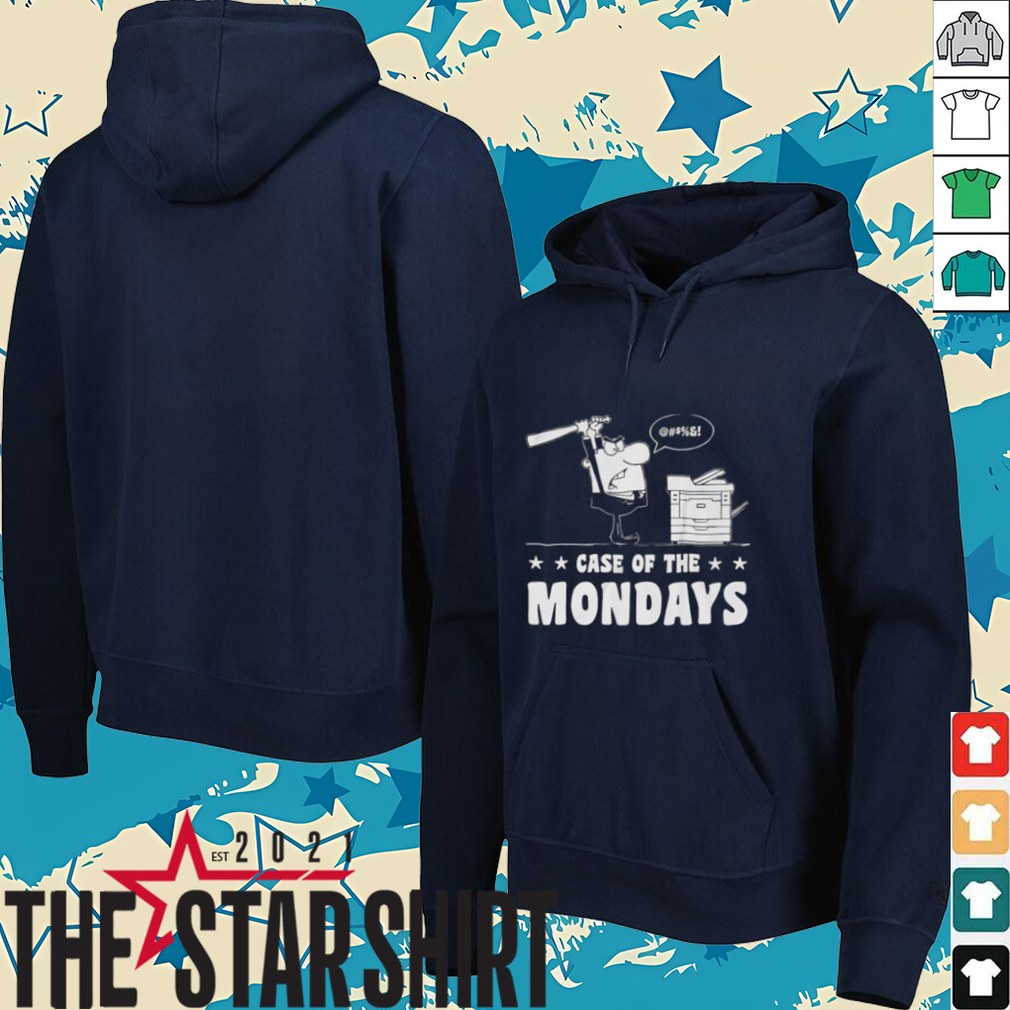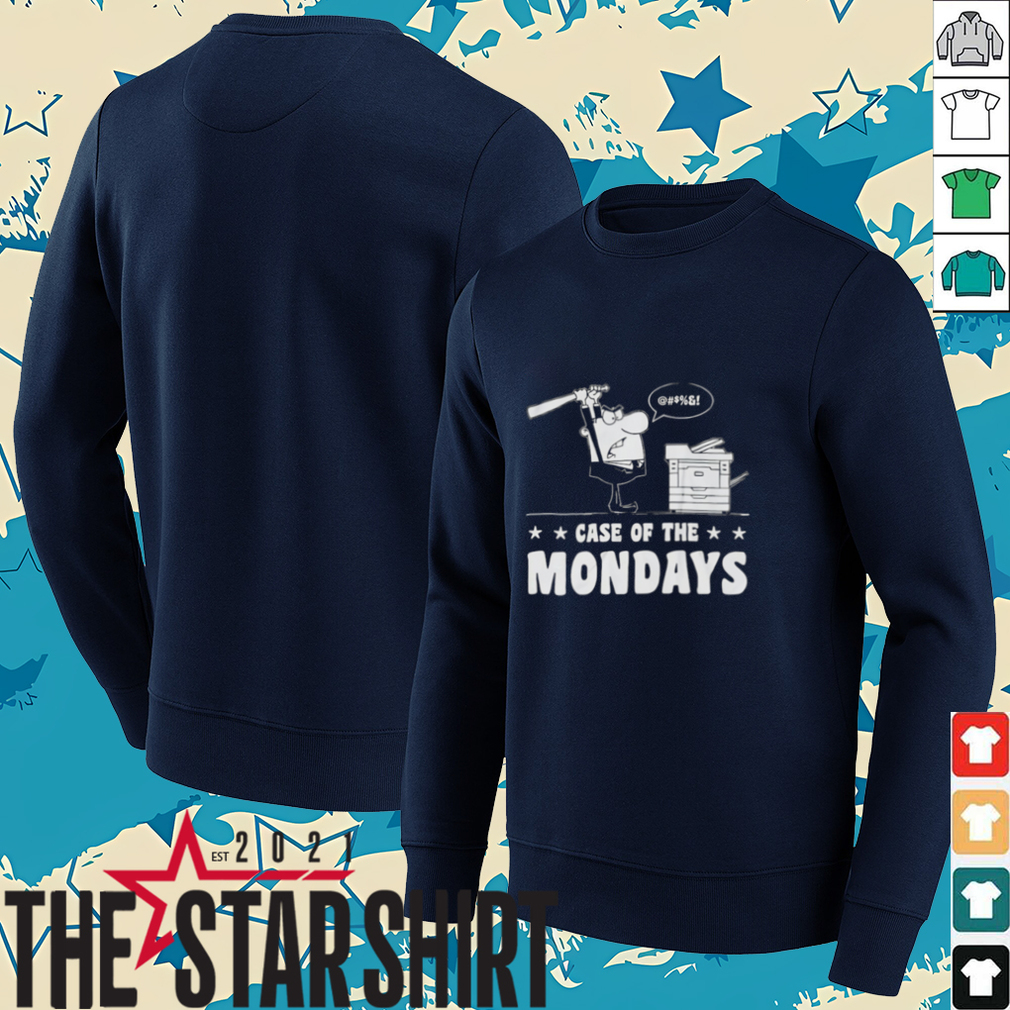“Case of the Mondays Shirt”: A Humorous Ode to a Universal Sentiment
The “**Case of the Mondays shirt**” is a witty and relatable piece of apparel that perfectly captures a universally understood sentiment: the dread, sluggishness, or general grumpiness often associated with the start of the workweek. The phrase “**Case of the Mondays**” became a prominent entity in pop culture, heavily popularized by the iconic 1999 film Office Space, where it served as a sarcastic dismissal of a character’s genuine malaise. This **shirt** isn’t just a piece of clothing; it’s a social identifier, a nod to shared experiences of the post-weekend slump, and a humorous way to express a common frustration. It’s designed for anyone who’s ever felt that particular Sunday night anxiety bleed into Monday morning, for fans of classic workplace comedy, and for those who appreciate a good, relatable meme. It offers a lighthearted take on a sometimes heavy feeling, making it an appealing choice for a wide audience seeking to express their mood with a touch of irony.
—
The Origin of “A Case of the Mondays”: From Film to Pop Culture Idiom
The phrase “**A Case of the Mondays**” is a powerful closed entity, a semantic keyword that has transcended its origins to become a common idiom in English. While the feeling of dreading Monday mornings likely existed long before, the phrase was unequivocally popularized by the 1999 cult classic film, Office Space. In the movie, the condescending boss character, Bill Lumbergh, uses the phrase to dismiss Peter Gibbons’ genuine unhappiness with his job. This cinematic moment served as a viral trigger, injecting the phrase into the mainstream and solidifying its place in pop culture. This real-life success story of a movie quote becoming a widespread expression provides social proof of its relatable nature. Before Office Space, the phrase rarely appeared in written records, as noted by Dictionary.com, with only a few isolated instances. But what happens next will surprise you: even though it’s often used humorously, new research published in ScienceDaily on July 7, 2025, indicates that “Monday stress is etched into your biology,” with older adults reporting Monday anxiety showing 23% elevated cortisol levels in hair samples, even among retirees. This suggests the “Monday blues” aren’t just a feeling, but can have a biological footprint. So, how has the humorous, almost dismissive origin of “A Case of the Mondays” in pop culture evolved to acknowledge the genuine psychological and even biological impacts of Monday-related stress?
—
Understanding the “Monday Blues”: Psychology Behind the Grumpiness
The “**Monday blues**” is a widely experienced phenomenon, often characterized by feelings of sluggishness, low motivation, anxiety, or general irritation at the start of the workweek. Psychologists and mental health experts often attribute this to several factors: the stark contrast between the freedom of the weekend and the structured demands of work or school, disrupted sleep patterns from weekend habits, and anticipatory anxiety about the week’s tasks. The “Sunday scaries,” a pervasive sense of dread on Sunday evenings, often precede and contribute to the Monday blues. This emotional risk is something many of us unknowingly take when we drastically alter our sleep and routine on weekends. While not a clinical diagnosis, the symptoms can overlap with those of general anxiety or even depression if persistent. For example, a 2018 study (as cited by Medical News Today) found a higher frequency of suicide among young adults and teenagers at the beginning of the week, suggesting a more significant impact for younger demographics. To combat this, experts recommend maintaining consistent sleep schedules, planning something fun for Monday evenings, and proactively tackling worries by planning the week on Friday. Are there distinct psychological profiles or personality types that are more susceptible to experiencing severe “Monday blues,” and if so, what are the underlying reasons?
—
The “Shirt”: A Fashionable Way to Express a Mood
This “**shirt**” featuring the “**Case of the Mondays**” phrase serves as an excellent illustrative example of how clothing can be a powerful, non-verbal form of communication. It’s a unique attribute in the world of apparel, moving beyond mere aesthetics to express a shared human experience with humor and authenticity. Wearing such a **shirt** creates instant social proof among those who recognize the reference, fostering a sense of camaraderie and shared understanding. It’s a conversation starter, allowing wearers to bond over a common plight. If you like to zoom in this way on shirts that use pop culture references or relatable sentiments to create a sense of community and shared humor, you might also find appeal in other similarly themed apparel, such as the P-40 Warhawk Fighter Aircraft Shirt, which, while in a different niche, also leverages a strong, recognizable image and historical context to connect with a specific audience.






























